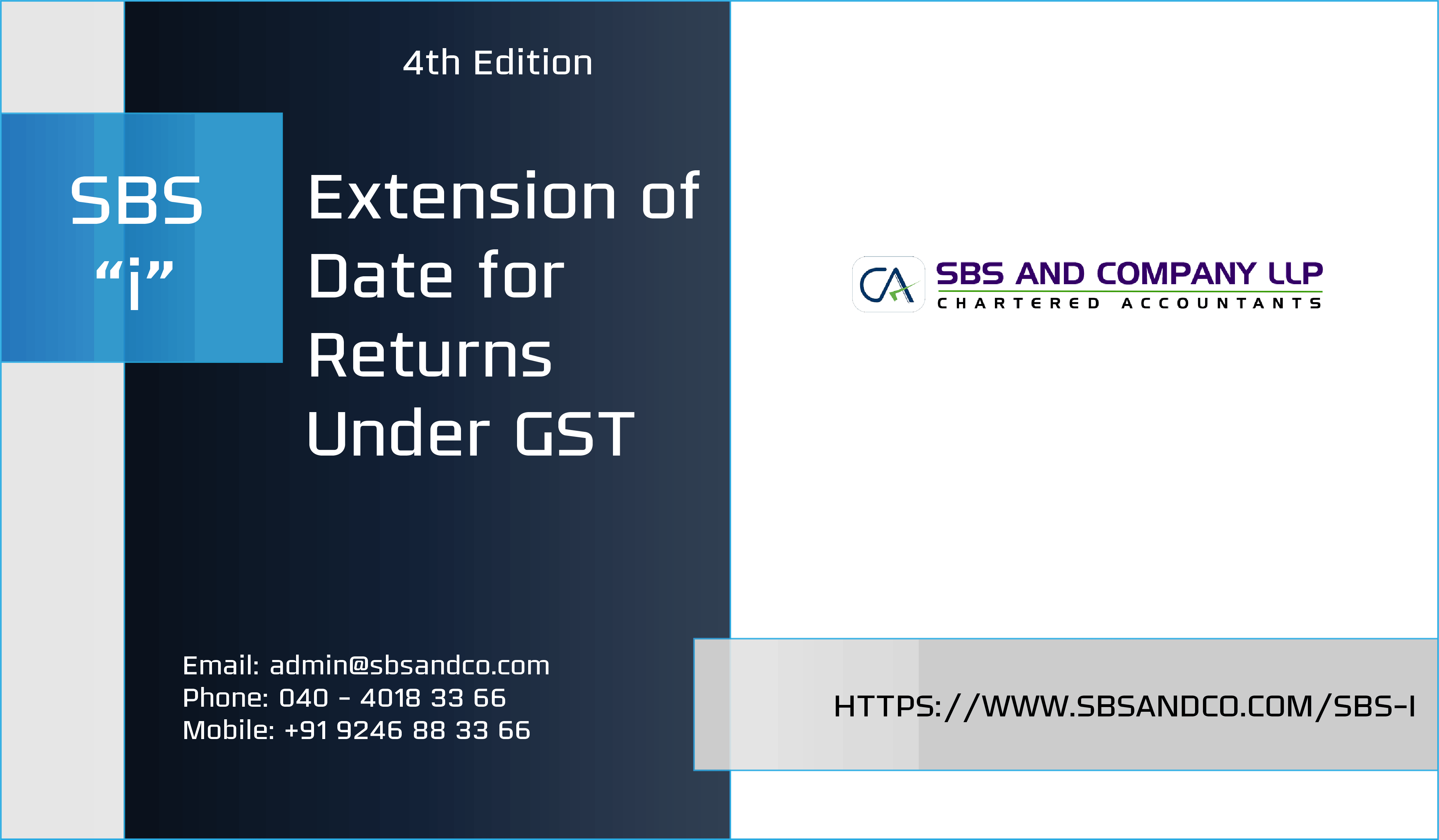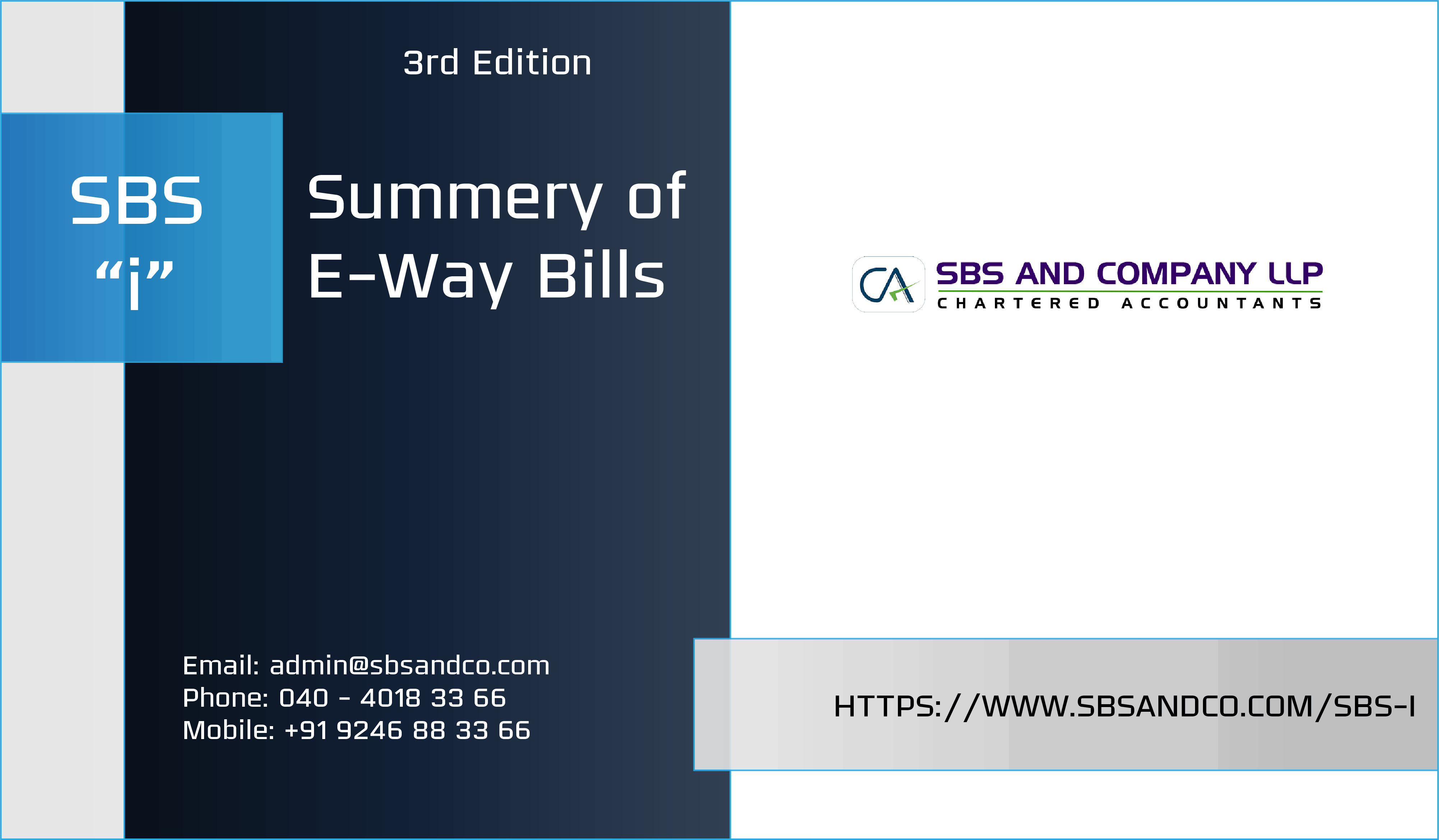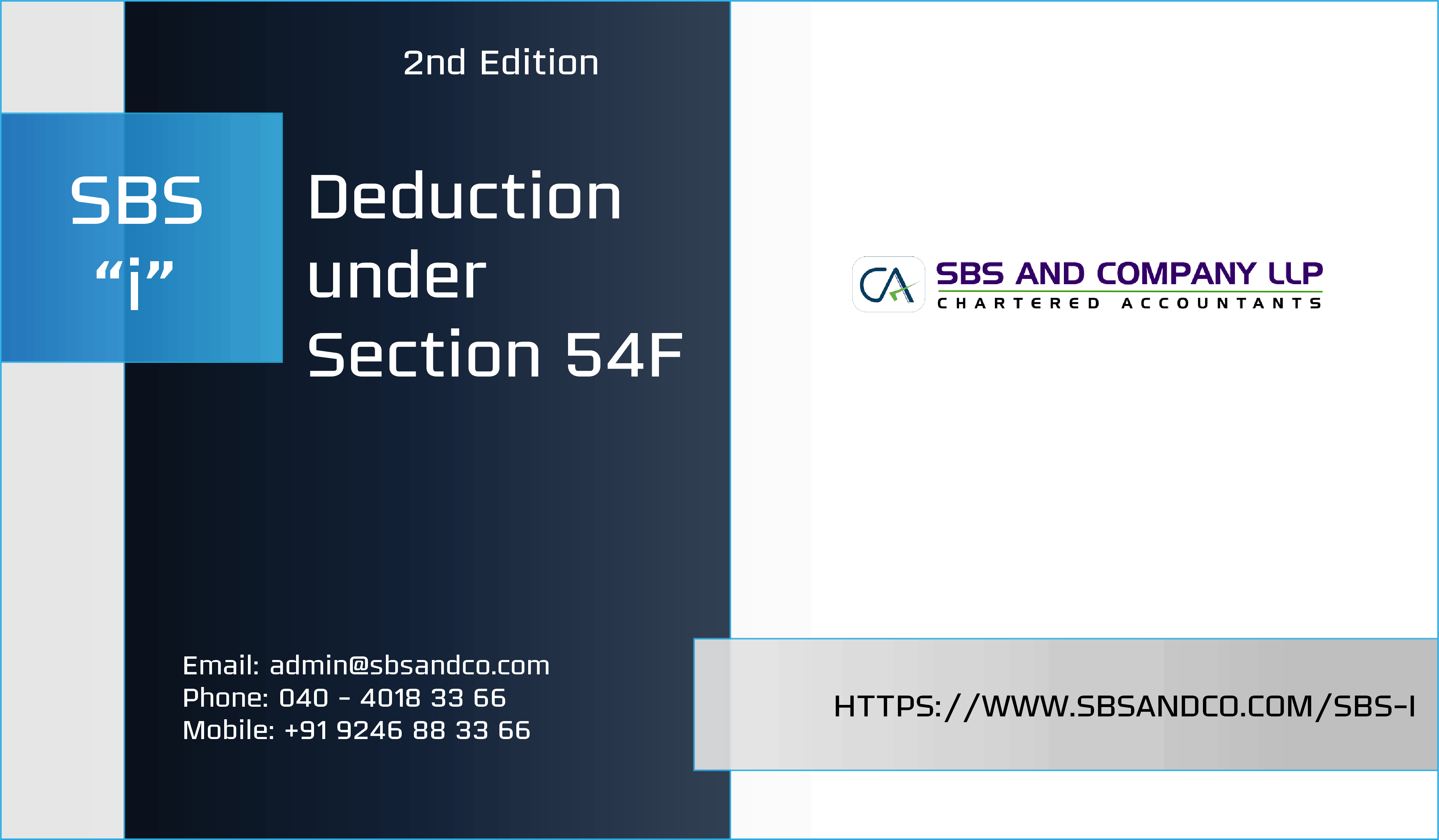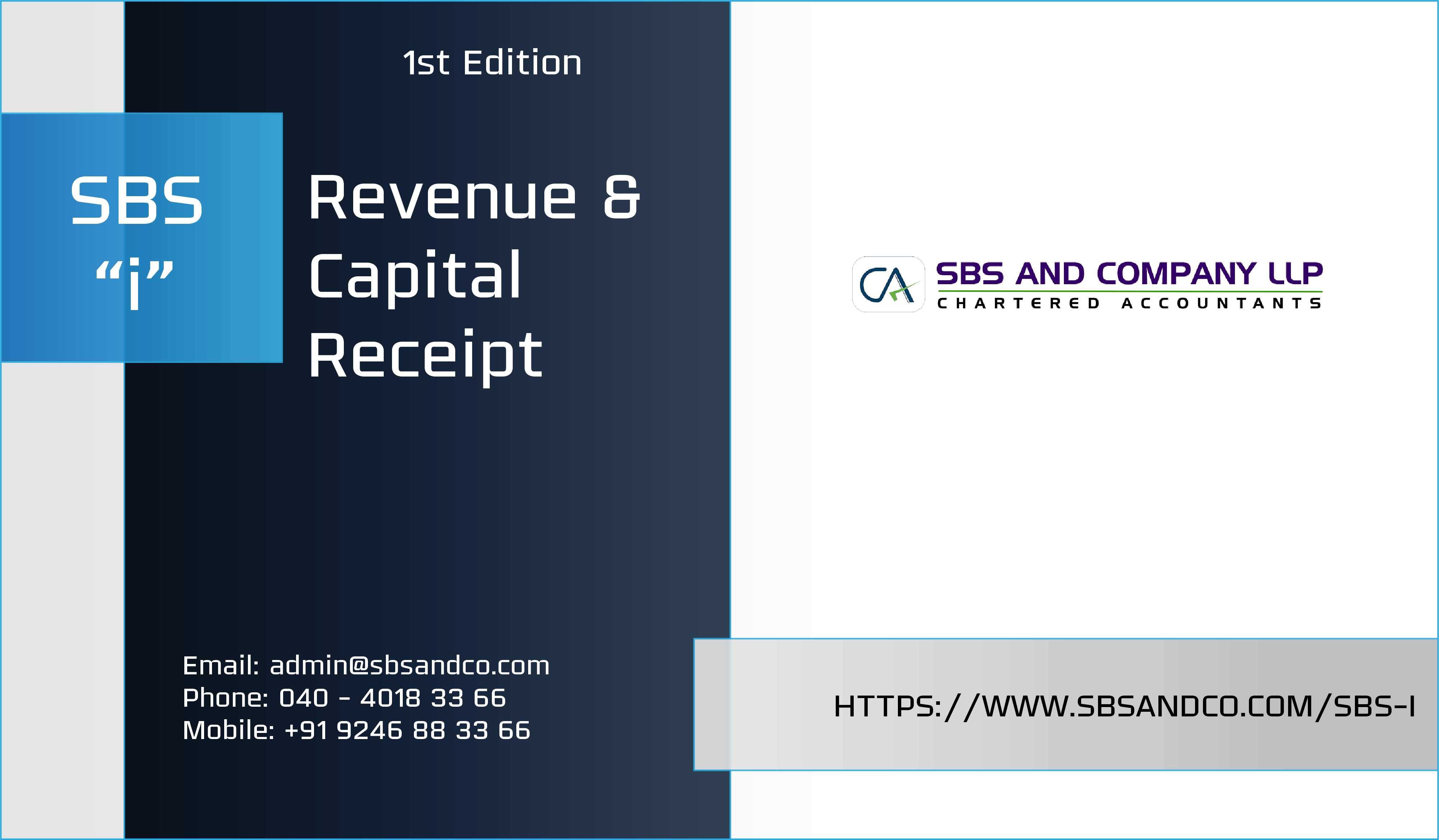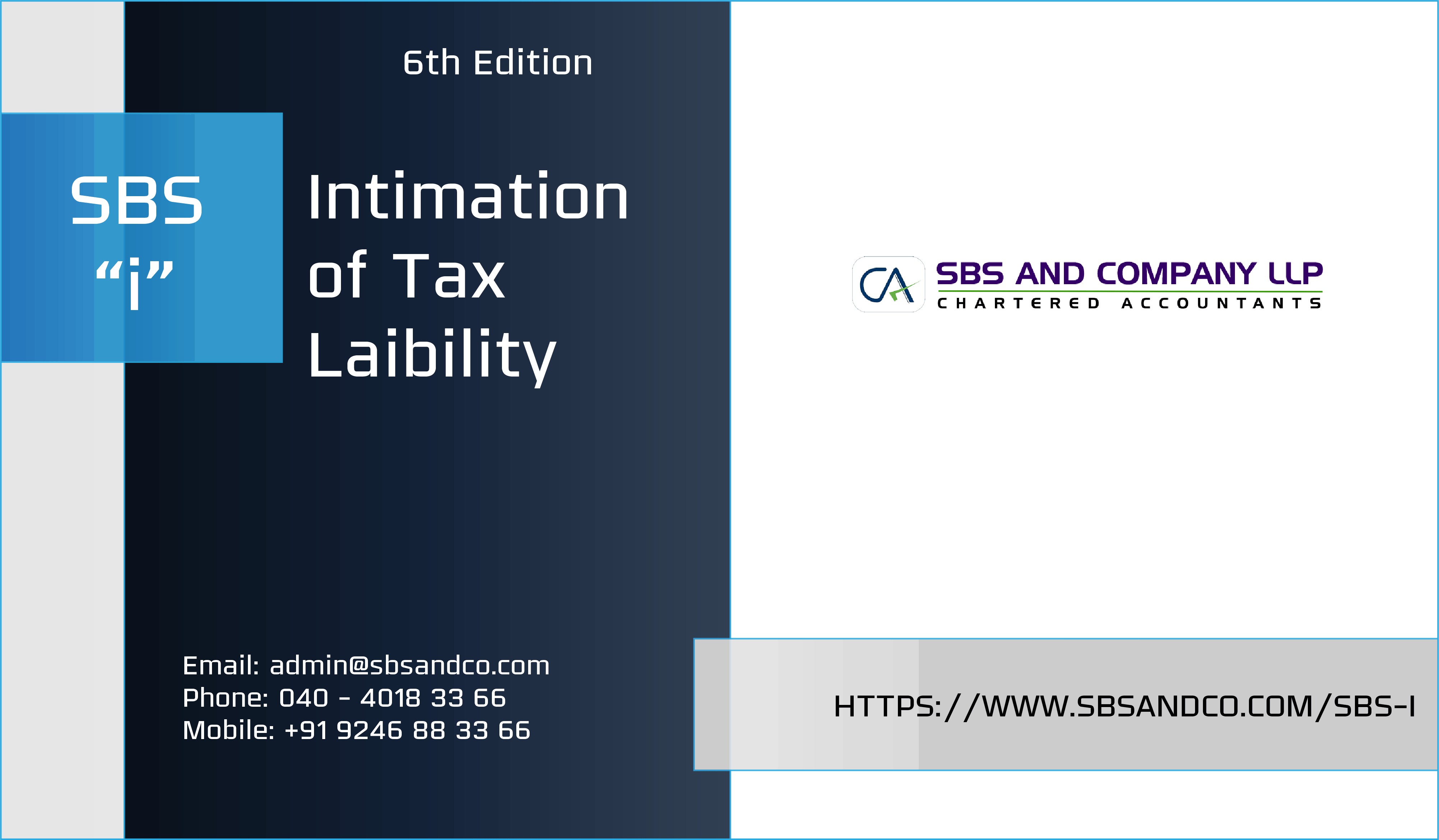Brief of Update:
This update pertains to release of a press note as a consequence of 21st GST Council Meeting at Hyderabad. The summary of the press note is hereunder:
- The date for filing the GSTR – 1 for July 17 has been extended to 10th October 17;
- The date for filing the GSTR – 2 for July 17 has been extended to 31st October 17;
- The date for filing the GSTR – 3 for July 17 has been extended to 10th November 17;
- The due date for GSTR-1/2/3 for Aug 17 and later periods will be notified later;
- An opportunity for revising GST TRAN-1 has given once
- The due date for filing TRAN-1 has been extended till 31st October
We must wait for the notifications for effecting the said above decisions.
This article is contributed by Partners of SBS and Company LLP - Chartered Accountant Company. You can be reached at This email address is being protected from spambots. You need JavaScript enabled to view it.


